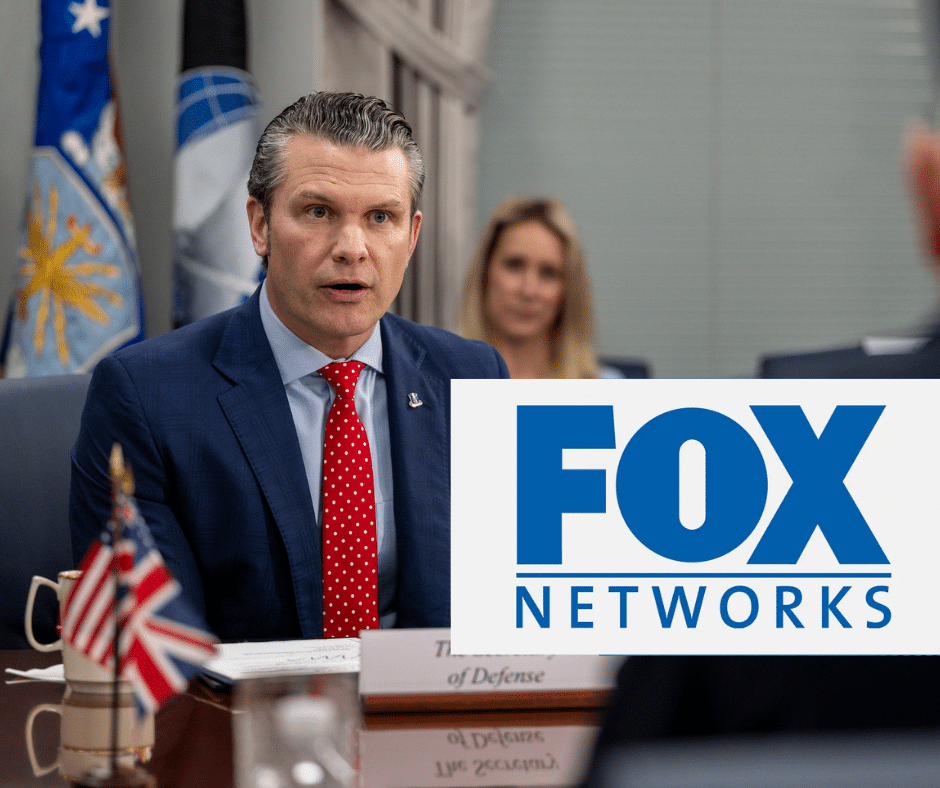Congress has until December 16th to enact a final FY-23 spending bill, pass another CR, or risk a partial government shutdown. Find out what’s at stake and the budget implications for taxpayers involved in choosing between omnibus and long-term CR. TCS Senior Policy Analysts Joshua Sewell and Wendy Jordan join host Steve Ellis for a conversation about the serious consequences that missing deadlines can have on policy priorities.
Listen here on Apple Podcasts
Episode 35: Transcript
Announcer:
Welcome to Budget Watchdog All Federal, the podcast dedicated to making sense of the budget, spending, and tax issues facing the nation. Cut through the partisan rhetoric and talking points with the facts about what’s being talked about, bandied about, and pushed in Washington. Brought to you by Taxpayers for Common Sense. Now, the host of Budget Watchdog AF, TCS president Steve Ellis.
Steve Ellis:
Welcome to all American Taxpayers Seeking Common Sense. You’ve made it to the right place. For over 25 years, TCS, that’s Taxpayers for Common Sense, has served as an independent, nonpartisan budget watchdog group based in Washington, DC. We believe in fiscal policy for America that is based on facts. We believe in transparency and accountability because no matter where you are in the political spectrum, no one wants to see their tax dollars wasted.
It’s the first full week of December 2022. And the vexing question facing lawmakers right now is the impact of an omnibus spending bill versus a continuing resolution or CR to fund the government by the end of the year. In point of fact, Congress has until December 16th to enact a final fiscal year 2023 spending bill, pass another CR or risk a government shutdown.
So what is the lame-duck session of the 117th Congress going to do? Here to bring us the very latest on what’s at stake and what’s likely to happen are TCS Senior Policy Analysts, Joshua Sewell, and Wendy Jordan.
Wendy Jordan:
Here we go again, Steve.
Josh Sewell:
Buckle your seat belts. This spending sleigh is going to get bumpy.
Steve Ellis:
All right. All I want for Christmas are my top funding priorities. Well, not so fast. Piling all the work at the end of the year is exactly how you land on Santa’s naughties list. Why? Because funding priorities go right out the window when talk of a year-long CR starts taking hold.
Josh, break it down for everyone. What are the budget implications for taxpayers involved in the choice between an omnibus and a long-term CR?
Josh Sewell:
Well, it’s a little bit of being between a rock and a hard place. Neither is ideal. But I think an omnibus is less unpalatable than a CR. Both of these are a failure in process. So an omnibus is not going to be transparent. It’ll be thousands of pages long. It’s going to be made, hopefully, a week before Christmas, or possibly just a day or two before Christmas. So there’s going to be absolutely no time to read this thing. All kinds of riders can be added on. These are policy riders, spending riders, things that people have not seen. And so this really puts a lot of power in leadership and in the committee chairs at the expense of the rest of Congress.
That being said, CR, it’s that and worse. A continuing resolution will lock in funding at last year’s level, and that’s not what we need in a lot of places. There will be a series of anomalies that the administration will request and the committees will give them, but that’s likely not inclusive of everything that needs to change. And it doesn’t get a thorough debate. The anomalies list will not get a thorough debate, certainly not from the entirety of Congress.
So when it’s all said and done, here we are a quarter of the way through the new fiscal year, and you get your final spending allotment if you’re in an agency. But you’re a quarter of the way through and you learn you’re basically in suspended animation under a CR for a whole year. So either one isn’t good. And we’ve talked about process before. So these are both products of a bad process, but I think in the end, an omnibus is a little bit better than a year-long CR.
And by the way, federal agencies, they have already submitted their fiscal year 2024 requests to the White House. So how can you possibly make a reasonable request or projection when you haven’t even finalized this year’s spending? You can’t, right? It really penalizes the agencies and all of government. It’s a really crappy way to run a railroad.
Steve Ellis:
So this is Senator Appropriations Chair Patrick Leahy and ranking member Richard Shelby’s last turn at getting spending bills enacted. Both decided not to run for reelection and retire at the end of the year. Don’t they want to wrap up the final fiscal year 23 bill before they leave the Capitol Hill forever?
Wendy Jordan:
Yeah, they absolutely do, Steve. Senator Leahy and Senator Shelby have been members of the Appropriations Committee between 30 and 40 years. And appropriators are a pretty clannish bunch. They’re their own tribe on the Hill. There’s the Democrats, the Republicans, and the appropriators. That’s the old joke.
So they care. All the appropriators, not just the chairman and the ranking really care about finalizing their bills and doing their constitutional responsibility as Congress. And they don’t want to abdicate that responsibility. And I think it’s more than just a personal pride issue for the two of them. I think all appropriators want to get this done.
Steve Ellis:
Fun fact, Budget Watchdog AF listeners, Senator Leahy is a big Batman fan and actually appeared in one of the Batman movies standing up to the bad character in the last Christian Bale version.
Patrick Leahy:
We’re not intimidated by thugs.
Steve Ellis:
So anyway, just nerding out a little bit there. Okay. So I saw that House Minority Leader McCarthy, the punitive leader of the House Republicans next Congress, and that’s a whole other story, that whole soap opera that’s going on in the Republican conference, is pushing to get Republicans to punt the spending bills into next Congress. But do they really want that?
Wendy Jordan:
Well, that’s politics, isn’t it, Steve? I mean, I think it’s a little bit of vote no, but hope yes theater. Dealing with the FY23 spending bills next January is going to be really, really messy and would probably result in a shutdown. I don’t think Republican leadership wants to have a government shutdown be the first thing that they “accomplish” when they’re in leadership again in the House.
And I have to get over my bias, my personal recollections of what split government used to be, which was split government meant that lawmakers were motivated to compromise to get anything done. But it’s been a good few years since that was the outcome of a divided Congress. Now it seems like, unfortunately, the goal of some politicians is simply to throw a spanner in the works.
Josh Sewell:
Yeah. And we need to remember that right now. This spending debate is being wrapped up in the discussion about what to do with the federal debt limit.
Steve Ellis:
That’s right. I mean, the debt limit, that seemed like a hot topic for a minute there and might have actually been resolved in the lame duck, but where does that stand?
Josh Sewell:
Well, there was chatter about using the lame duck that we’re in right now to increase the limit. And that was proposed by a number of Democrats to avoid a potential fight in the next Congress because we are, or they are running out of time.
So last I saw, there was a report that said I think we’re going to run up against the federal debt limit in early 2023. But the government can use various, they call them extraordinary measures that have been employed numerous times in the past, that can push any actual breach to actually reach the debt limit to sometime in the summer or even October. And I got to say, 10 months from now might as well be 10 years the way Congress runs. So this debt limit issue has, at least in the immediacy receded to the back.
Steve Ellis:
Got it. Debt limit. That’s an issue that we’ll need to cover in a future podcast. But as Budget Watchdog All Federal listeners know, the debt limit is about enabling the government to pay for spending decisions they already made. So back to those decisions that are currently being made.
You’re listening to Budget Watchdog All Federal, the podcast dedicated to making sense of the budget, spending, and tax issues facing the nation. I’m your host, TCS President Steve Ellis, and we continue now with Wendy Jordan and Josh Sewell, TCS Senior Policy Analysts.
Okay, Wendy, who gets hurt the most? Secretary of Defense Lloyd Austin seems quite worried about what the non-budget deal or even a long-term CR could mean for the Defense Department. I see that the DOD officials have compiled a list of dire consequences if the military is forced to operate under a one-year stopgap funding bill for the first time in history, from aid to Ukraine, to procurement of the new B-21 stealth bomber. The warnings along with a letter from Secretary Austin to Congress reflect increasing alarm in the top ranks of the Pentagon. So what gives, Wendy?
Wendy Jordan:
Well, I’ll start, Steve, by saying that I agree with the secretary that everybody is hurt by a lack of congressional action on both the policy bill and the spending bill for the Pentagon.
But one of the biggest issues is procurement programs through the Pentagon. If you think about how many things the Pentagon is under previous contract to purchase, those really big programs in the contractual arrangements, they have a schedule for periodic progress payments. If the contractors are in compliance, having to do with production schedule and other aspects, the Pentagon needs to make those payments, and they need to make amount of time or they start paying penalties. But if the government’s operating under a CR, they can’t pay out money at a faster rate than they were paying in the previous fiscal year. So if they do, they might end up in violation of one of our favorite topics at TCS, the Anti-Deficiency Act.
Steve Ellis:
So I get what Secretary Austin is saying, but isn’t that true for the rest of government?
Josh Sewell:
Yeah. So I mean, first of all, it ain’t just the Pentagon that buys stuff. So I mean, every federal agency is going to be procuring something. And granted, USDA doesn’t procure nearly the amount of stuff dollar-wise as the Pentagon will. But you have these decisions being made through all these agencies. And the inability to do that procurement on time, it goes down to all kinds of businesses, including small businesses.
But also there’s various agencies are involved in contracts for infrastructure. You think about this. They’re going to go through and trying to spend to allocate a lot of money from bills recently to build infrastructure. And so you can’t go into these contracts and start these contracts if you don’t have your new contracting authority.
And another thing is just there’s dozens and dozens of grant programs, and so small grants, big grants, you name it. We’re not going to be getting investments in, again, infrastructure, general procurement, but also in some preparing for natural disasters.
So we’ve got all these kinds of issues here. And again, just the ability to plan and think about what to do next year is already being impinged right now because they don’t know what they can spend this year.
And it’s really kind of a cynical ploy in the fact that you feel like you kneecap government so that it can’t run efficiently, and then you complain about government being inefficient. And really, in the end, it’s about Congress getting its job done.
Steve Ellis:
Well, speaking of Congress getting its job done, what else is going on right now?
Wendy Jordan:
This is more about what’s not going on on the Hill. It is another issue that’s important to all agencies like Josh just was talking about contractual obligations hitting all federal agencies, but I’m going to use the Pentagon as an example, and that’s the Senate hold up on confirming nominees to senior Biden administration positions.
There are 11 nominees for senior Pentagon positions who are currently being held up by some senator for some reason. Those reasons are often completely unrelated to the duties of the nominee being held up. Some of these folks are being held up for the same reason that it appears the Pentagon policy bill, the NDAA, is being held up. And that is the issue of a mandate for all military service members to be vaccinated for COVID-19. There’s a number of senators, a number of House members who want that mandate rolled back and are holding up action on both the Pentagon policy bill and on a number of nominees unless or until that mandate is removed.
There’s another set of reasons that some nominees in the Pentagon are being held up. Certain senators, in particular, want more information. They want a briefing. They want a report. It’s a little unclear to me exactly what they want. My guess is a classified briefing and report on the evacuation from Afghanistan at the beginning of the Biden administration.
But here’s the deal, the Pentagon is a huge bureaucracy and the Sec Def is being forced to operate without the Pentagon’s nominees for several important jobs. Just last week, the Senate finally confirmed the Inspector General for DOD. That’s a topic that we have written and opined about in the recent past. In the case of the Inspector General, the Pentagon had been operating without one for more than six years. And they had an interim Inspector General, but they had no permanent Inspector General.
Steve, do you remember that we talked about the audit during the last podcast?
Steve Ellis:
I do. I do.
Wendy Jordan:
One of the major responsibilities of the Office of the Inspector General has to do with compliance with an audit. So it’s nuts to take so long to confirm the IG in circumstances like this.
Then there’s the Navy, which is operating without its senior appointee to be the comptroller and the chief financial officer. Then there’s the Navy, which is operating without its senior appointee to be comptroller and chief financial officer. Senior leadership positions in financial management are key to moving toward a clean audit opinion, but the Senate is still sitting on that nomination as well. And I just think it’s crazy.
Steve Ellis:
Thanks. And the nominee issue is very topical with the Senate runoff in Georgia. We all know that no matter the outcome of that election, the Democrats will retain their Senate majority, 50 votes, plus Vice President Harris as a tiebreaker. But if Senator Warnock wins reelection, the Democrats will have a 51-49 majority. And what does that mean, beloved podcast listeners? Every committee will have a majority of Democrats. Right now, they’re evenly split. Going further, that means that legislation and nominees have an easier path to the Senate floor on confirmation.
Okay, Josh, enough of that, enough politics. Let’s talk tax extenders, the gift that keeps on giving even retroactively. What can taxpayers expect on this front?
Josh Sewell:
So the tax act of 2017, which was the tax cut bill the Republicans passed through reconciliation, there’s a number of things in there that are expiring. One of them being a 100% bonus depreciation for equipment and machinery. And then also under the tax act starting this year, businesses are required to take their research and development deduction over five years instead of 100% immediate expensing.
And that’s an important provision for folks because you can imagine if you had a, even with inflation, there are a number of highly profitable corporations this year. So if you have a lot of profits and you make a lot of investments in your research and development for this year, you can then shield most of those profits if you had 100% immediate expensing. Having to take that over the next five years means you may have some years that your income’s not as great over those years. So those are two major priorities for a lot of business groups.
Interestingly, with the R&D deduction, that was actually, the expiration of the R&D deduction this year was included in 2017 to lower the projected cost of the bill. So instead of making that a permanent provision or even making it a 10-year provision, they shortened the lifespan of it to make the bill look less expensive to get it through the reconciliation rules partially. And so now here we are, oh, as if we didn’t see this coming.
Steve Ellis:
Right. Because Budget Watchdog AF listeners, I mean, the bills are scored over a 10-year period. And so if you make a provision expire after five years, well then, it appears to be a lot less expensive than it actually is. It’s sort of like your side view mirror in your car that objects may be closer than they appear. And so these are provisions that are more expensive. And certainly, the authors were hoping that when the five-year expiration rolled around that it would just get extended. And so you kind of slip something in that’s a lot more costly than it came out in that official scorekeeping.
So Josh, what else besides the big-ticket business tax expenders can we expect?
Josh Sewell:
Sure, there’s a whole bushel of other things, many of them from the pandemic era as if that’s behind us. But at least the legislation addressing it, I think for the most part the big-ticket bills will be behind us, it appears for the next Congress.
So you had a number of things that were specific to pandemic response, and those will be expiring. And there’s some push to get those. The biggest one is the crowd favorite I’d say, the enhanced Child Tax Credit. And that is one that if you may remember, the current Child Tax Credit you get up to $2,000 per child under some of the pandemic response bills. It was increased to $3,600 for children under the age of six and then $3,000 for children six and above. And so that expired this year. So it does not apply to this tax year.
And so there’s been a significant push to get that extended for at least a year, if not made permanent. But it’s a very expensive tax credit, similar to R&D and some others that can be very costly. And so it’s been bandied about, but it’d be hard-pressed to get something that big, you would think, at the end of the year. But this is also a time for surprises in the end of a Congress, especially when power’s going to change hands.
And so there’s also the usual suspects, which I think we should cover on another podcast one day that come up every year or two years that get extended, the enhanced deductibility of race horses. So you can deduct the cost of a race horse over three years instead of seven. Really important to certain race-horsing states, namely Kentucky. And there’s some others, the rum carryover is actually expired, so there’s an extra $3 that Virgin Islands and Puerto Rico can get on their rum carryover.
These are some really fun things that we’ve worked on in the past that you should go to our website and really dig into the history of these programs that have been coming around every two years, these temporary tax cuts that come back every two years.
Steve Ellis:
Yeah, I remember the rum excise tax cover-over was extended for a period, but I think it does end up coming up pretty soon. They try to push that issue forward. What else is going on?
Wendy Jordan:
Well, Steve, as you and I discussed in the last podcast, the Pentagon policy bill, which is shorthanded in DC as the NDAA, the National Defense Authorization Act, is still hanging fire. We believe we may actually have a draft of the authorization bill in the House Rules Committee being teed up for House consideration for the conference report, which would be the final step prior to it going to the President for signature. As you and I discussed, it’s been more than six decades where the NDAA has passed every year. I think nobody wants this to be the first year that it doesn’t happen.
Steve Ellis:
Not everybody has said that they should get the NDAA done this year. House Minority Leader…
Wendy Jordan:
Well, that’s true. Good point.
Steve Ellis:
… McCarthy had said that he wanted to push it and promptly got smacked by the Armed Services Committee ranking member. Not physically, but rhetorically smacked down because, let’s face it, that’s their bill, and they want to get it done.
Wendy Jordan:
Right.
Steve Ellis:
And it doesn’t matter whether you’re in the minority or the majority; you want to get it done.
Wendy Jordan:
And again, as we alluded to earlier, the vaccine mandate and possibly rolling back the vaccine mandate is all part of that debate. So you are correct, not everyone in Washington wants to make sure it’s passed.
Josh Sewell:
And there are a couple other things floating out there. There’s a Water Resources Development Act that’s floating out there.
Steve Ellis:
No pun intended.
Josh Sewell:
That’s the bill where about every two years now Congress has been passing this authorization bill, which covers flood control projects, our good friend beach nourishment projects, but also some water access, so in some of the drought areas, and general infrastructure when it comes to water resources.
The one benefit of that is at least it has gone through committee. So there has been some transparency there. But it’s one of these things where you’re going to add another thousand or so, maybe more pages of text, legislative text, onto this omnibus if it gets on there. And folks who aren’t on the committee probably haven’t had much time to look at it.
And besides that, I couldn’t believe we went a podcast without talking about it. Some sort of emergency spending bill supplement could be added onto this as well. And that could cover spending for Ukraine as well as most definitely some sort of natural disaster emergency bill, specifically for agriculture and drought and hurricanes.
And last but not least, something that won’t be on there, but if we have this conversation next year, the farm bill.
Steve Ellis:
I’m waiting for it.
Josh Sewell:
They are not trying to put a farm bill. They are not trying yet. But next year, if we have this conversation, there will be an attempt to jam a farm bill onto the omnibus. Prepare.
Steve Ellis:
Well, there you have it, listeners. The lights are still on in DC, at least for now. But the prospect of missing deadlines to fund the government and policy priorities can have serious consequences. This is the frequency, mark it on your dial, subscribe and share, and know this, Taxpayers for Common Sense has your back America. We read the bills, monitor the earmarks, and highlight those wasteful programs that poorly spend our money and shift long-term risk to taxpayers. We’ll be back with a new episode, and I hope you’ll meet us right here.










